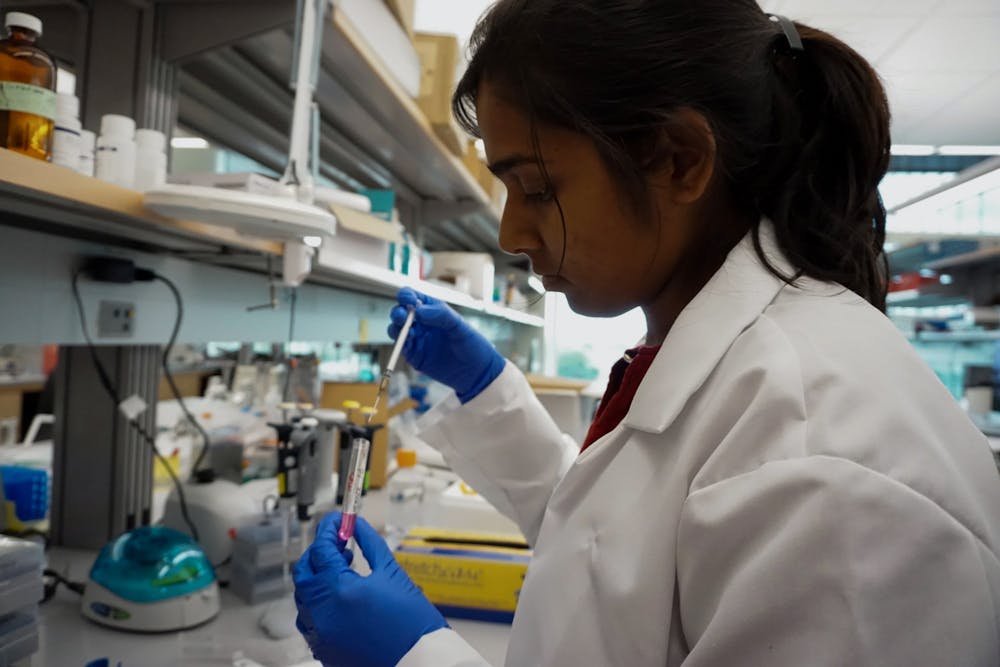Penn Undergraduate Research Mentoring Program will be conducted remotely this summer in response to the coronavirus pandemic.
Through PURM, first-years and sophomores spend 10 weeks conducting research spanning from biology, engineering, music, and architecture with a Penn faculty member.
PURM was faced with the decision to modify the program or cancel it altogether after Penn announced the University would continue remote instruction for summer academic sessions, Senior Associate Director for Center for Undergraduate Research and Fellowships Ann Vernon-Grey said. Following conversations with administration and faculty members involved with PURM, Vernon-Grey said CURF decided conducting PURM remotely, although “less than perfect,” was the best possible outcome amid the pandemic.
Vernon-Grey added, however, Penn has yet to make a decision on whether on-campus labs will be open for faculty this summer.
Vernon-Grey said PURM notified faculty members who received PURM funding earlier this week of the decision to move to remote work. These faculty members, who will soon be matched with undergraduate students, had until April 10 to devise a plan to conduct their research remotely. If funding recipients cannot conduct their research remotely, Vernon-Grey said the money will be granted to other faculty whose projects are more suitable for remote work.
Vernon-Grey said PURM will then notify students over the next several weeks beginning April 13 on whether they have been matched with a professor to conduct research over the summer.
College first-year Andrew Ni said he applied to three projects related to machine learning through PURM, all projects he believes will be able to function remotely this summer.
Ni added that, although not ideal, moving the research online will benefit both the faculty's projects and the students’ learning experiences more so than canceling the program altogether.
RELATED:
Penn extends pass/fail opt-in deadline to April 29, the last day of spring classes
Virtual instruction complicates volunteering in Philadelphia for ABCS courses
College first-year Ollie Dupuy applied to two PURM projects for this summer in hopes of creating a more multicultural and LGBTQ inclusive approach to education. Dupuy said they have not yet received information about how these projects might function remotely.
While grateful PURM is not canceling altogether, Dupuy said the shift to remote work is disappointing, as Dupuy was looking forward to building personal relationships with the professor and graduate students involved with the research.
Dupuy added that while they will be able to work remotely, they face barriers to remote work including spotty Wi-Fi and needing to take care of family members.
"Of course not everyone has the same privilege to be able to take something and work from home in the same capacity, so I know that PURM moving remotely is going to be inaccessible for a lot more people which is very disappointing," Dupuy said.
Professor Carol Muller was selected for PURM funding for a podcast project featuring South African jazz musicians. She said she originally planned to travel to South Africa with her students to conduct interviews with the musicians. Now, she hopes to conduct the interviews over video conferencing platform Zoom.
In anticipation of PURM's shift to remote work, Muller said a student who applied to work on her project helped her find a way to make the project function remotely. Muller said she plans to have students sit in on the Zoom interviews and help transcribe, edit, and post the interviews to a website.
She added, however, moving laboratory-based research to remote work will be more difficult than moving her podcasting project and other humanities-based research remote.
“If we can do it, we should try and do it to give students a way to keep a little bit of normal,” Muller said.









